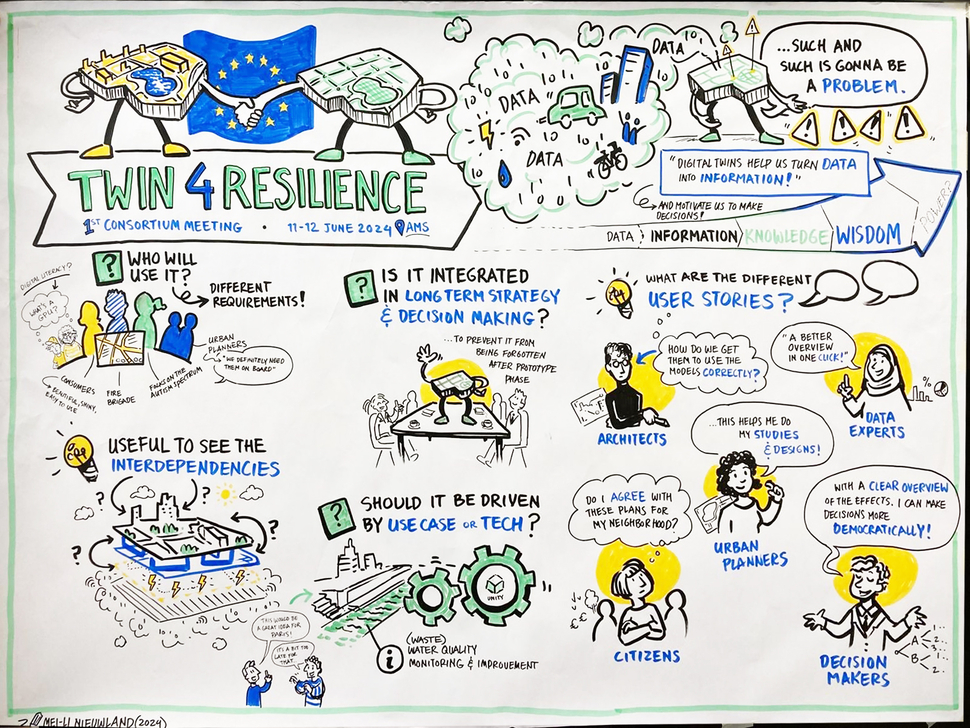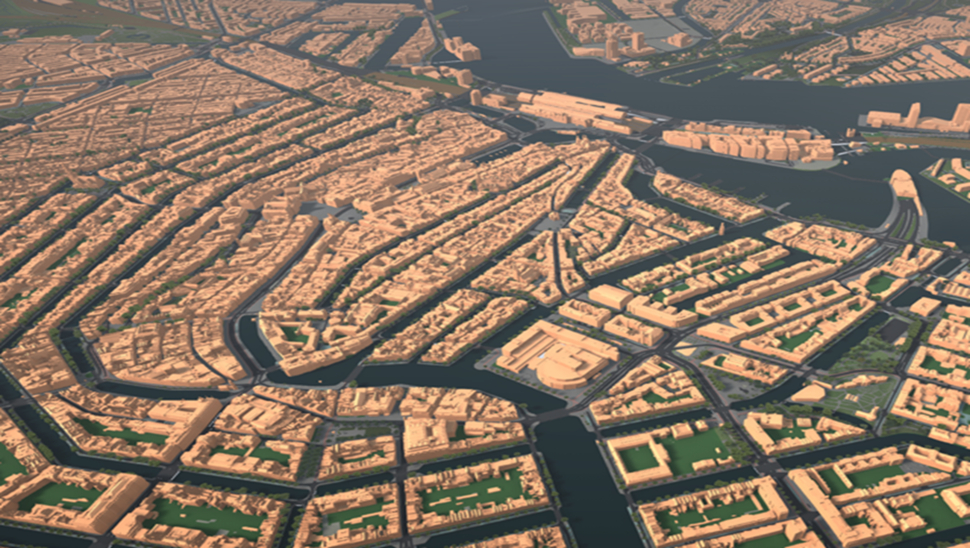Twin4Resilience is a project on Digital Twins (LTDs) in spatial planning. This project will help the city shape the future of urban planning and sustainable development in an innovative way. The project aims to:
- Wider application of LDTs in urban design and planning work,
- Good 3D rendering of urban planning plans, making simulations and visualisations easier
- Training planners and designers in the use of LDTs
- International cooperation; how do other cities work with LDTs?
- Reflection ethical side of using data in urban and spatial planning
Increased knowledge and skills among officials, urban planners and citizens about possibilities and limitations of LDTs. LDTs deployed for more inclusive and democratic spatial decision-making in many more local and regional governments; Through a joint strategy based on 4 jointly developed LDT frameworks: technical design, governance, ethics/inclusion/democracy, training, 8 pilots jointly developed and implemented by 8 governments (CITYUTR, AMS, DCC, RM, BXLCITY, ICL, SCHUTT, VMM); and 300 Participants in jointly developed and implemented training program.
The 7 local and 2 regional authorities, 3 higher education and research organizations, 1 SME and 1 NGO, from 6 different NWE countries included leaders and followers in working with LDTs. The diversity, also in size and other characteristics, makes T4R of use and value to all governments in NWE and beyond. This is further strengthened by its collaboration with 8 local stakeholder groups, 4 transnational framework groups, 4 transnational spatial planning theme groups and with 130+ stakeholders outside T4R consortium.

